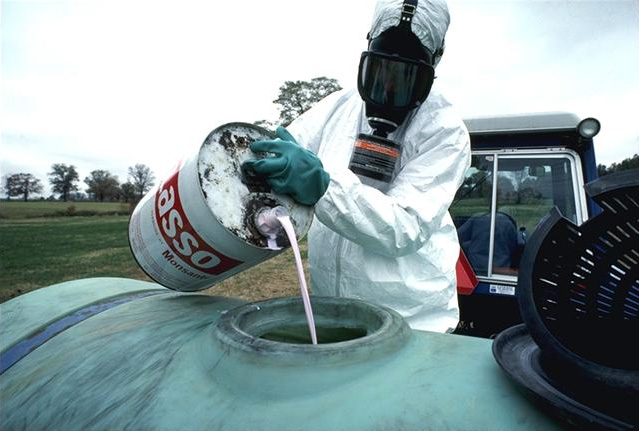
Polychlorinated Biphenyls (PCB) – Monsanto’s Toxic Chemicals
If you're still on the fence wondering if Monsanto's genetically engineered (GE) crops are a good thing or a bad thing for the environment and human health, a look at this company's sordid past may help make up your mind.
While Monsanto refers to itself as a "sustainable agriculture" company delivering products that support farmers, be aware that they've spent many years to try and rehabilitate their image.
Prior to their foray into the seed business, Monsanto was (and still is) a producer of toxic chemicals responsible for widespread death and suffering.
March 15, 2016 | Source: Mercola | by Dr. Mercola
If you’re still on the fence wondering if Monsanto’s genetically engineered (GE) crops are a good thing or a bad thing for the environment and human health, a look at this company’s sordid past may help make up your mind.
While Monsanto refers to itself as a “sustainable agriculture” company delivering products that support farmers, be aware that they’ve spent many years to try and rehabilitate their image.
Prior to their foray into the seed business, Monsanto was (and still is) a producer of toxic chemicals responsible for widespread death and suffering.
One such chemical was polychlorinated biphenyls (PCBs). Once heralded for its ability to prevent electrical fires, it has since become known as one of the most toxic and environmentally persistent chemicals ever created.
And now, a chemical safety bill could shield the company from all legal liability related to its widespread destruction.
‘Monsanto Clause’ Lets Monsanto off the Hook for Environmental Destruction
Congress is in the process of updating the Toxic Substances Control Act, a 40-year-old piece of legislation in serious need of overhaul. Once reformed, the Act will determine how the chemical industry is regulated, including which chemicals are allowed and who can sue over any related problems.
That latter part is important, especially when faced with the type of devastation caused by chemicals like PCBs. But the House of Representatives has slipped in a clause that many are calling a “gift” to chemical giant Monsanto; the paragraph shields the company from legal liability related to PCBs.
Monsanto produced almost all PCBs sold in the U.S. — all 1.25 billion pounds of them.1 If the clause is allowed to remain in the Toxic Substances Control Act, PCB lawsuits against Monsanto by state and local governments and individuals would be blocked. States would also be blocked from passing PCB regulations.
As reported by The New York Times, Monsanto insists it did not ask for the clause to be added, and the House denies it is a “gift.”2 If you believe Monsanto had nothing to do with this clause, they also have some oceanfront property in Arizona to sell you.
Now city officials and lawyers involved in suing Monsanto to recover cleanup costs associated with PCBs or receive compensation for related health problems are protesting the “Monsanto Clause.” According to The Times:3
“Taxpayers and public entities would be left holding the bag to pay hundreds of millions of dollars if not billions of dollars cleaning up Monsanto’s PCBs,’ said John Fiske, one of the lawyers representing the six cities suing to collect money from the company to help cover cleanup costs.
Monsanto has not yet argued that the cities are barred from suing, but Mr. Fiske says he is certain that if the legislation passes, the company will make that argument.
Ms. [Charla] Lord [a company spokesperson] says Monsanto bears no responsibility for cleanup costs in cities like Seattle, San Jose and San Diego.
‘PCBs served an important fire-protection and safety purpose,’ she said in a written statement. ‘If these products were improperly disposed of, Monsanto is not responsible.'”
